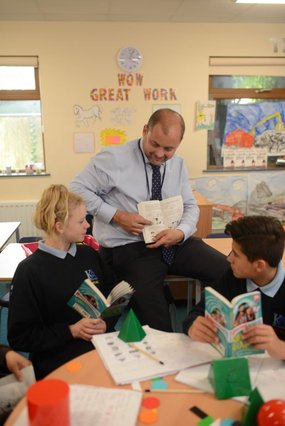
Historically, reading has been emphasised more in primary than secondary education, with initiatives to support reading typically falling away as children move up the school system. Recent evidence shows high levels of reading need alongside lower levels of reading activity in secondary students. Therefore, there is a pressing need to promote reading in secondary school.
Co-authored by Professor Jessie Ricketts, Royal Holloway University London, and Dr Christina Clark and Irene Picton from the National Literacy Trust, this report brings together insights from different research methodologies and perspectives to synthesise key findings on reading in secondary students.
Key highlights
There are high levels of reading need in secondary school
Evidence indicates a need to target the following in secondary students:
- reading proficiency, including word and text reading accuracy, reading fluency and reading comprehension
- reading behaviour, supporting choice of reading materials and encouraging more reading
- reading affect, including how motivated students are to read, how enjoyable they find reading
We need to support reading for all secondary students
● Reading knowledge and skills are extremely variable
● This presents substantial challenges for teachers
● We must ensure that teachers have the confidence and capacity that they need to support all learners, as well as those with reading needs
We can’t rely on primary schools to identify reading needs
● Some needs are pervasive, so support needs to continue in secondary school
● Some needs emerge in secondary as the challenge of reading and teacher expectations change
We need evidence-based approaches for secondary that are effective, feasible and acceptable
● Evidence for how to promote reading in secondary students is only starting to emerge
● We can draw insights from primary approaches but cannot assume that these will be effective in secondary
● Researchers must collaborate with teachers and students to find approaches that are effective, but will also be feasible and acceptable across secondary school contexts.
As a society, we must do more to promote reading proficiency, behaviour and affect in secondary students, with a shared focus on supporting proficiency and creating a rich reading culture. The report sets the scene for future work that identifies good practice in schools and evidence-based approaches for supporting reading in secondary school.